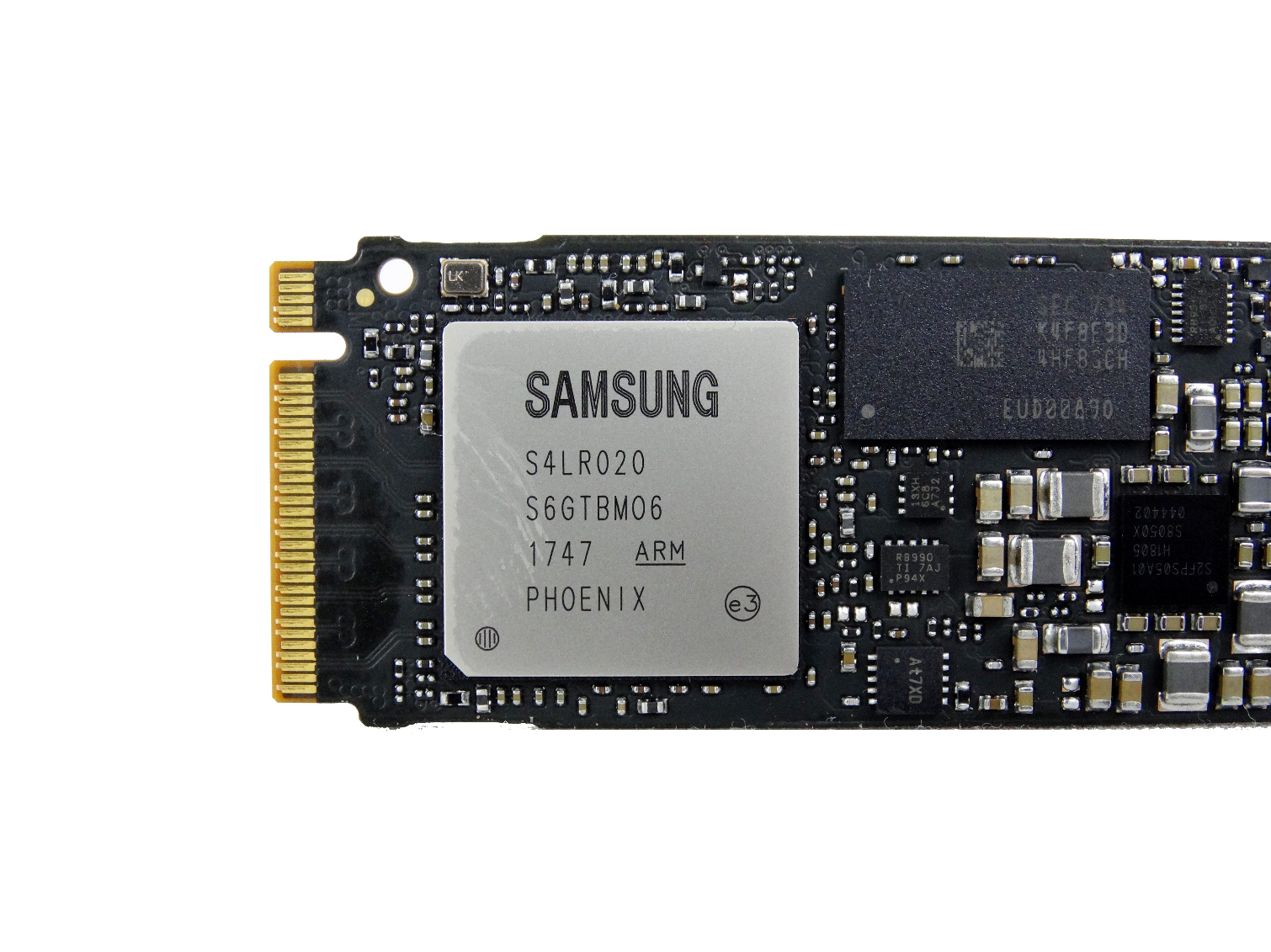Samsung 970 Pro SSD Review: Expensive MLC Excellence
Why you can trust Tom's Hardware
Conclusion
As we expected, the Samsung 970 Pro came out on top in nearly every test. When another product managed to squeeze in a win, it wasn't by much. The 970 Pro, the only consumer NVMe SSD still shipping with MLC flash, has solidified its position at the top of the NAND-based SSD market. There isn't a serious MLC competitor in sight, so the 970 Pro will likely lead for another few years.
Samsung's market positioning is the saving grace that will keep some excitement in testing new products. Samsung priced the 512GB 970 Pro at $329.99 and the 1TB at $629.99. The premium pricing ensures that only professional users that truly need the sustained performance will opt for this series. That demographic continues to expand, but product selection has shrunk. Currently, the 970 Pro and Intel Optane 900p are the only two viable options. The 970 Pro is better with sequential workloads, while the Optane 900p dominates random workloads. The 970 Pro is the fastest professional-class NVMe SSD for heavy audio, video, and image editing. All of these files use large block sizes that read and write to the drive as sequential data. Those files also chew through endurance rapidly because they write to the drive so rapidly.
The Samsung 970 Pro is also the endurance champion. Even with 600 TB (512GB) and 1,200 TB (1TB) of write endurance, Samsung is likely sandbagging the rating to leave users a large buffer before an endurance failure occurs. The HP EX920 currently offers the best price to performance ratio, though. The $369.99 1TB drive is a full $260 less than the 1TB 970 Pro, but it only provides 400 TB of write endurance. Even though the HP looks like a reasonable alternative, it lacks the sustained write performance and endurance to be on the list for demanding professional users.
In the past, Samsung's Pro series was a great choice for gamers and even casual PC users looking for maximum system performance. As time passed, other companies brought less-expensive products to market, but Samsung has been reluctant to address its NVMe Pro SSD pricing. The 970 Pro 512GB is only $20 less than the 950 Pro 512GB when Samsung introduced it in late 2015. We can't blame the flash shortage anymore: Samsung is just stubborn. The market hasn't produced a serious competitor, so there isn't a reason for Samsung to lower pricing. Workstation users with heavy workloads will pay whatever is required, but gaming and non-professional users are more likely to sacrifice some storage performance so they can invest in faster system memory or a beefier graphics card.
The 1TB 970 EVO is the mainstream version of the 970 Pro series. If you don't fall into the professional user category, we suggest taking a serious look at the 970 EVO. It's better suited from a price-to-performance perspective for most users, even though the 970 Pro is still a better product when performance is the only metric you care about.
MORE: Best SSDs
MORE: How We Test HDDs And SSDs
Get Tom's Hardware's best news and in-depth reviews, straight to your inbox.
MORE: All SSD Content

Chris Ramseyer was a senior contributing editor for Tom's Hardware. He tested and reviewed consumer storage.
-
Sakkura That sustained sequential write is pretty amazing. All the other drives are wheezing but the 970 Pro just does. not. care.Reply -
tyns78 Regardless of the steep extra cost, the Optane 900P should be included. If you're willing pay for this then the 900P is also a consideration.Reply -
enzoozzytiger Why do your randread and randwrite numbers lag Samsung's spec by such a huge margin? If your numbers are accurate, then I can't recommend this SSD, as Micron 9200 MAX is offering way much better performance (I measured 760k+ 4kB randread IOPS) at a much lower per TB price (3.2TB for $1700).Reply -
AgentLozen Aren't the HP EX920 and Intel 760p based on the same controller? I remember that the 760p performed really well a few months back. It would have been interesting to see how it performs today.Reply -
CRamseyer Samsung rates NVMe SSD with 4 workers at QD4 each. It's like running four applications with each on a CPU core and then hitting your drive with requests 4 times for each one. When we have ample software to can operate that way, we'll test that way.Reply
We did run a test like that just to see half a million IOPS and actually got almost 600,000 IOPS.
The EX920 and 760p use the same controller but very different firmware. The HP has a larger write buffer. -
oldnconfuzed I'm looking to reduce wait times associated with start-up, changing characters, and especially loading zones in a game (Elder Scrolls Online). Money isn't a huge consideration (within logical reason). Assume high-end "everything else" (CPU, Graphics, etc). Do I want:Reply
1) a 970 Pro (Windows + Game)
2) a 970 Evo (I keep reading that the differences might be "unnoticeable"
3) two 970 Evos in Raid 0
4) an Optane 900P
My current system runs older "non-M.2 NVMe" SSD's (2 in raid 0) ... so I'm well versed in the difference between them and a hard drive.
Thanks kindly in advance! -
AgentLozen The difference between a 970 Pro and a 970 EVO isn't perceivable in a home environment playing games. I would buy a single 970 EVO or something that competes with it like the Intel 760p or HP EX920. If money isn't a problem, you could go with 1TB and install all of the games you want.Reply
I hope this helps.
